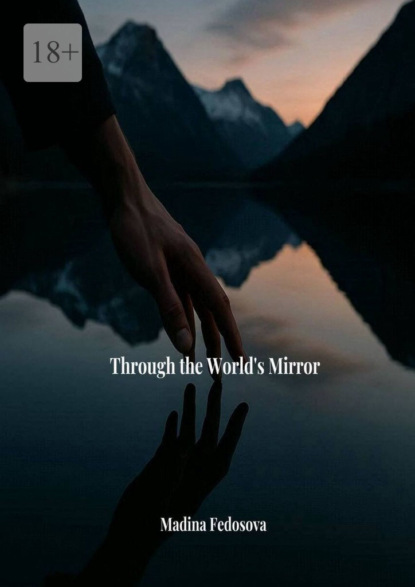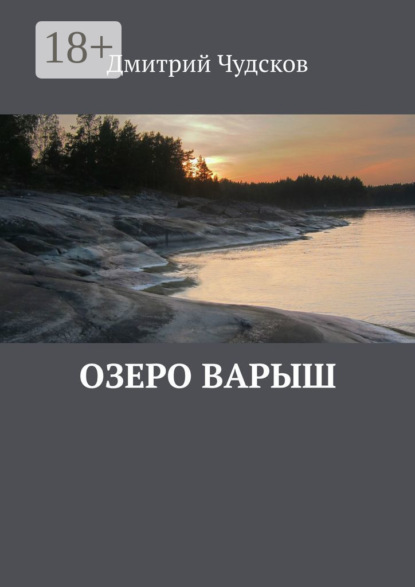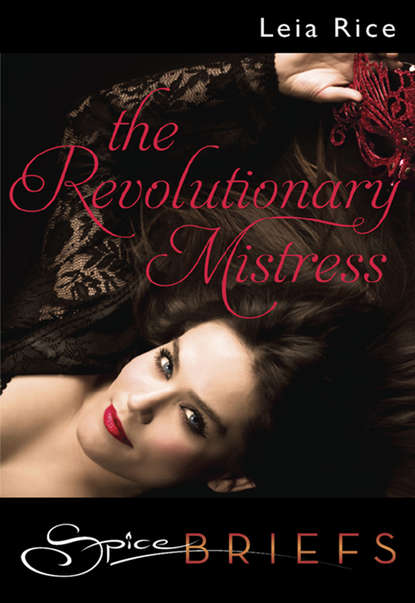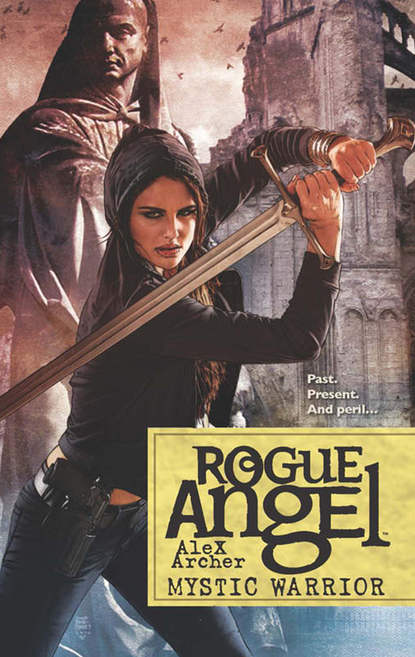- -
- 100%
- +
Home wasn’t much easier. His parents, simple working-class people who were at the factory from morning till night, didn’t understand his love for books and his thirst for knowledge. They lived in a world where hard physical labor was valued, not «useless» reading. They thought he was wasting his time on trifles instead of helping them with the household.
«What are you always reading for?» his mother would grumble, wiping her greasy hands on her apron. «You’d be better off chopping wood or weeding the garden, that would be more useful. Instead, you sit there like a lord, flipping through books.»
His father, a man of few words and stern, would silently nod in agreement, occasionally muttering: «Learning is light, of course, but you need to have practical skills too.»
They didn’t understand his world, a world full of dreams, fantasies, and philosophical reflections. They wanted him to be «like everyone else,» not to stand out from the crowd, to be «normal.» They didn’t understand that he was «different,» that his silence was not a curse but rather a gift that allowed him to see the world more deeply and acutely.
He tried to explain to them that reading and reflection helped him understand the world, that this was his way of speaking, that he couldn’t express his thoughts in words but could express them through understanding. But they wouldn’t listen.
«You need to speak with your mouth, not with books,» his father would cut him off, banging his fist on the table. «And if your mouth doesn’t work, then at least work with your hands!»
His mother would add reproachfully: «You should have become a mechanic, like your father, you’d be priceless. But instead, you sit there, as if you’re not of this world.»
He felt lonely and misunderstood in his own home. It seemed to him that there was an insurmountable wall between him and his parents, built from misunderstanding, prejudice, and ignorance. He dreamed that they would try just once to understand him, to look at the world through his eyes just once. But he knew it was impossible.
His only refuge was her. She accepted him for who he was, with all his quirks and flaws. She saw in him what others did not – his intelligence, his kindness, his talent. She was his friend, his mentor, his muse. She inspired him, supported him, and made him believe in himself.
She often told him: «Michael, you must learn to love yourself for who you are. You must accept your silence as a part of yourself. You must understand that your strength is not in words, but in your eyes, in your heart, in your soul. You see the world differently than others, and you must show this to the world.»
She made him feel special, needed, valuable.
She taught him sign language so he could communicate with other people. At first, he was shy and awkward, but she patiently explained the signs, encouraged him, and praised him for every success. She turned learning sign language into a fun game, and soon he began to communicate freely with her and with other people who knew sign language.
She taught him to express his thoughts and feelings through drawings and poetry. She noticed he had a talent for drawing and gave him a set of paints and brushes. He started drawing everything he saw around him: landscapes, portraits, still lifes. His drawings were unusual and expressive, with a sense of depth and sincerity. She helped him unlock his creative potential.
But even her love and support couldn’t completely free him from feelings of inadequacy and fear of the future. He knew that one day he would have to leave this small town to find his place in the world. But he was afraid he wouldn’t be able to handle the difficulties, that his silence would become an insurmountable obstacle. It seemed to him that the world was too cruel and unfair for someone like him.
He began to notice beauty in simple things: in the sunbeams breaking through the foliage, in the dewdrops on the grass, in the smiles of passersby. He began to understand that the world wasn’t as cruel as he had thought before. But he also understood that this beauty was fragile and fleeting, and that it needed to be cherished and protected. He wanted to learn to capture this beauty, to preserve it for himself and for others.
It was then, as he was trying to find a way to express himself and preserve the beauty of the world around him, that he saw an old camera in a shop window. It beckoned him with its mysterious appearance, as if inviting him on an unknown journey.
She stopped next to him and, following his gaze, smiled softly. She always knew how to read his thoughts without words. «Do you like it?» she asked, and he just nodded, unable to take his eyes off the vintage apparatus.
They entered the shop and were immediately enveloped by the smell of antiquity and forgotten stories. Dusty shelves were crammed with all sorts of curiosities: old books, yellowed photographs, broken clocks, and other treasures of the past. Behind the counter, as if stepped out of an old photograph, stood the shopkeeper – a gray, wrinkled old man with thick-lensed glasses.
He smiled warmly and, adjusting his glasses, asked: «See something you like, young folks?»
She pointed to the camera in the window. The old man followed her gaze and, nodding, carefully took the camera out of the display.
«Ah, this Zenit…» he murmured, as if talking to an old friend. «A legendary device. Reliable as a Swiss watch, and capable of taking amazing shots. But it requires skill and patience. This isn’t a modern digital point-and-shoot; you have to think, adjust, feel the light.»
The old man started telling them about the camera, its mechanism, types of film, shutter speed, and aperture. He spoke with such passion that Michael was captivated, forgetting everything else. He realized that photography wasn’t just about pressing a button; it was an art that required knowledge, skill, and, most importantly, soul.
The old man handed the camera to Michael. «Try it,» he said.
Michael took the camera in his hands. It was heavy and cool, but he felt something resonate in his soul. He looked through the viewfinder and saw the world as if for the first time. Everything around became sharper, brighter, more interesting.
He raised the camera to his eye and began to focus. His hands trembled slightly with excitement. He felt like an artist who had been given a brush.
He understood that this was what he had been looking for. A tool with which he could speak without words, a tool with which he could express his thoughts and feelings, a tool with which he could capture the beauty of the world and share it with others.
He looked at her, and she understood everything without words. In her eyes, he saw support, understanding, and love. She smiled and nodded, as if blessing him on this new path.
«We’ll take it,» she told the old man.
The old man smiled back. «I’m glad. I feel this camera has found good hands. Remember, young folks, a real photograph isn’t just a snapshot; it’s a story. Tell your stories, show the world your soul.»
They left the shop, and Michael held the camera tightly to his chest. He felt happy and inspired, as if he had received a key to a door leading to a new, unexplored world. He couldn’t wait to start shooting, to capture the world around him, but he felt a little confused, like a child who had been given a complex toy.
She noticed this and, smiling, took his hand. «Don’t worry,» she said. «It’ll be fine. The main thing is not to be afraid to experiment and to trust your intuition.» She always knew how to find the right words to support him and give him confidence.
He looked at her and asked with his eyes: «What next?»
She thought for a moment, then with a sly smile replied: «Next, we go to the park and take your first shot. But not just any shot – a shot that will tell about you, about us, about our life.» It was as if she was challenging him, suggesting he not just capture a moment but create a work of art.
And they went to the park, where the trees whispered their secrets, the birds sang their songs, and the sun played in the leaves, creating intricate patterns of light and shadow. The park was their sanctuary, a place where they could hide from the cruelty of the world and feel safe.
They wandered through the park for a long time, looking for a suitable subject to photograph. She watched him carefully, trying to understand what attracted him, what moved him. She knew the first shot had to be special; it had to reflect his soul.
Finally, they stopped by an old pond overgrown with water lilies. On the surface of the water, as if in a mirror, the sky, trees, and clouds were reflected. The scene was mesmerizing and peaceful.
«There!» she exclaimed, and he knew she felt the same as he did.
She ran to an old, rickety bridge spanning the pond and, turning to him, gestured for him to come closer.
He approached the bridge, and she stood next to him, pressing her shoulder against his. «Take a picture of us,» she said. «Take a picture of us in the reflection of the pond. This will be our first photo together, a symbol of our friendship, a symbol of our love.»
He was a little taken aback. He had never photographed people before, especially in a reflection. But he trusted her, and he knew she wouldn’t advise anything bad.
He raised the camera, adjusted the focus, and put it to his eye. In the viewfinder, he saw their reflections in the pond: their faces, their hair, their eyes. He saw their souls reflected in the water, as if in a mirror.
He pressed the shutter button. The click of the shutter sounded loud and clear, like a shot. The moment was captured forever.
Chapter 3
The Voice of Reflections
He photographed the reflections of people, animals, buildings, trees. He photographed tirelessly, as if trying to fill some inner void, to quench an insatiable thirst. He believed that the truth, elusive to the eyes of ordinary people, was hidden in these reflections.
He caught reflections in puddles, turning gray streets into surreal canvases. He photographed shop windows, where reality mixed with illusion, and people reflected in the glass seemed like ghosts of their own desires. He photographed mirrors, capturing fleeting smiles, sad glances, and hidden emotions.
Day and night, in sun and rain, summer and winter – the camera was an extension of himself. He became the «reflection man,» an inconspicuous but ever-present witness to life.
But what did he feel? What went through his head when he saw the world, distorted, refracted, yet seemingly more real because of it?
Silence still reigned in his soul, but it was no longer the suffocating silence that had tormented him before. Now it was more like a deep breath before a leap, a silence filled with anticipation and the awareness of a great power hidden within him.
He often remembered the words she had said to him when they were seven: «The world is a mirror, Michael. And people only see in it what they want to see.» Her words were imprinted in his memory.
He understood: he had to see the world not as it seemed, but as it really was. He had to learn to «read» reflections like a book full of secrets.
One day, wandering the city streets, he saw a man sitting on a park bench, intently studying his reflection in his polished shoes. Michael couldn’t resist and took a few shots. When he developed the film, he was amazed: in the photograph, the man seemed deeply unhappy, his eyes full of sorrow, his face etched with despair. He realized he had seen not just a reflection, but the man’s soul.
He felt like a conduit, seeing what was hidden from others. He felt like a surgeon dissecting reality, revealing hidden layers and true feelings.
He wondered: what is truth? Does it even exist? Or is everything around just a play of shadows, an illusion we create for ourselves?
He read philosophy books, trying to find answers. He loved to quote: «Truth is what stands the test of experience.» – Albert Einstein.
And yet, the answers eluded him. He kept shooting, believing that with each new shot he would be one step closer to the solution.
Once, sitting in a cafe, he saw the reflection of a young couple in the mirror above the bar. They were laughing, hugging, and it seemed the whole world belonged to them. He took a picture, and when he developed it, their happiness seemed to have faded. He realized that behind this showy joy lay a fear of loneliness, uncertainty about the future. And then he concluded: «Reflections are like dreams: they show us what we hide even from ourselves.»
He continued on his path, tirelessly seeking the «voice of reflections.» His silence was no longer a curse; it had become his weapon. He saw the world differently than others, and he had to tell about it, to show what was hidden behind the glossy wrapper of reality.
One day, passing by an old cinema, he saw an announcement for a local photo exhibition. «The City in the Mirror: Reflections of Everyday Life» read the inscription. Smiling to himself, he thought this was his chance to make a name for himself.
Selecting a dozen of his best works, he went to the House of Culture where the exhibition was to be held. He was met by a plump woman in a strict suit and a sour expression.
«Hello, I’d like to submit an application for your exhibition,» he wrote on a piece of paper and handed it to her.
The woman, giving him a contemptuous look, took his photographs and started looking through them. «What is this?» she sneered. «Gloomy, depressive, no color. We need something more positive, something that will please the eye.»
Michael tried to explain that his photographs weren’t just pretty pictures, that they had deep meaning, that they reflected reality as it is. But the woman interrupted him: «Young man, this isn’t a club for alcoholics; we need good photographs.»
Unable to bear it, he snatched his works from her hands and was about to leave, but then a young guy standing next to the woman intervened. «Wait,» he said. «I think there’s something in these works. They’re unusual, they make you think.»
The woman snorted disapprovingly, but the guy, ignoring her, turned to Michael: «I’m the curator of this exhibition. Leave your works; I’ll look at them. If I like them, I’ll definitely include them.»
Michael, hesitating a little, agreed. The guy smiled and shook his hand.
On the day of the opening, Michael, nervous, approached the House of Culture. There were many people, music was playing, everyone was talking animatedly. He went inside and started looking for his photographs.
They weren’t there.
He walked around the entire exhibition but couldn’t find his works. Disappointed and angry, he went to the curator to find out what had happened.
He found him in a corner of the hall, arguing animatedly with the same woman. «I told you these photographs were no good!» she shouted. «They ruin the whole exhibition!»
Michael, unable to contain himself, ran up to them and tried to explain what had happened. But the woman, seeing him, laughed: «Ah, it’s you, young man! What did you expect? Did you think anyone would be interested in your gloomy pictures? You’re mistaken!»
He tried to answer her, but she cut him off: «Get out of here before I call the police!»
The curator intervened: «Please, no quarrels. I think we can find a compromise.»
«What compromise?» the woman shrieked. «I won’t allow these works to hang in my exhibition!»
Unexpectedly, a drunk visitor interrupted the conversation. «What’s all the yelling about?» he grumbled. «Let people enjoy the art!»
The woman, outraged by his insolence, pushed him, and he, losing his balance, fell to the floor. A scuffle broke out.
In the chaos, Michael decided he didn’t belong there. He left, feeling humiliated and insulted.
But, stepping outside, he looked at his reflection in a shop window and saw not defeat but strength. He realized he didn’t need this exhibition, that his photographs spoke for themselves. And he would continue his path, no matter what.
He left the exhibition, a lump of resentment and disappointment in his throat. The thought pulsed in his head: «Am I really worth nothing?» The smell of the cheap perfume the woman had been doused in seemed especially repulsive now. He wanted to wash, to wash off all the falseness and hypocrisy.
He walked down the street, head down, trying not to look at anyone. The city, which had once seemed a source of inspiration, now pressed down on him with its gray walls and the indifferent faces of passersby. He wanted to run, to hide, to disappear.
He remembered his grandmother’s words: «The world is cruel, grandson, but don’t let it break you. Be like a river – flow around obstacles but don’t change your course.» But now he felt not like a river, but like a small pebble thrown to the mercy of fate.
Suddenly, his attention was drawn by noise from a sports ground. A group of teenagers, dressed in bright tracksuits, were playing basketball enthusiastically. Their laughter, shouts, and the sound of the ball echoed through the area, creating an atmosphere of carefree fun.
Michael stopped and watched them. He remembered how he himself had loved playing basketball, how he had dreamed of becoming a famous athlete. But then he lost his voice, and with it, his dream.
He imagined approaching them now, offering to play a game. But he knew his silence would be an insurmountable barrier. He was «mute,» «different,» he didn’t fit into their world.
At that moment, the ball, as if released by the hand of fate, flew out of bounds and rolled right to his feet. He picked up the ball, feeling its rough surface in his palms, and was about to throw it back, but one of the teenagers, a tall, self-confident guy with a bold look, ran up to him and snatched the ball from his hands.
«What are you staring at, like a sheep at a new gate?» he asked rudely, reeking of sweat and cheap cologne. «Never seen a ball before?»
Michael tried to explain with gestures that he just wanted to help, but the guy, curling his lip contemptuously, interrupted him: «Oh, you’re mute. What’s the point of talking to you. Get out of here, don’t bother us.»
He pushed Michael on the shoulder, and Michael, losing his balance, almost fell. He felt anger boiling inside him, a wave of hurt and humiliation rising.
He tried to leave, but the guy, as if sensing his weakness, blocked his path. «What’s that you’ve got there?» he smirked, pointing to his camera. «Let me see.»
He tried to snatch the camera from his hands, but Michael, mustering all his strength, pushed him away. The camera, slipping from his hands, fell to the asphalt with a dull thud. The lens shattered into tiny pieces, glittering in the sun like tears.
The world seemed to freeze. Smells, sounds, colors – all disappeared. Only pain remained, sharp, burning pain of loss. The camera was his voice, his means of expression. Now he was mute again, helpless again.
Tears rolled down his cheeks, mixing with dirt and dust. He felt broken, destroyed.
The teenagers, seeing his tears, burst out laughing. «Look, the mute is crying!» one of them yelled, pointing at him. «What, sorry about your toy?»
At that moment, something in him snapped. Forgetting his fear, his muteness, his helplessness, he rushed at the teenagers with his fists. He hit them fiercely and desperately, pouring out all his pain, all his rage, all his hatred.
But there were more of them, and they quickly pinned him down. They threw him to the ground and started kicking him, shouting insults and curses. Pain pierced his body, but he didn’t give up, continuing to resist, continuing to fight.
He lay on the ground, his back against the cold, rough asphalt. The taste of blood in his mouth, mixed with tears, reminded him of spilled milk and the futility of regret. Pain pierced his body, but worse was the feeling of his own worthlessness and humiliation. The thought pulsed in his head: «Why does this always happen to me?»
And suddenly, through the fog of pain and despair, he saw a strange figure approaching them. It wasn’t a superhero from a comic book, not an avenging angel, but… an old man. Skinny as a rake, in a worn, weathered tweed jacket, with a huge, comically tied scarf around his neck and a cane that he twirled deftly in his hand like a seasoned musketeer.
The old man, emitting a battle cry resembling a crow’s caw, descended upon the teenagers, brandishing his cane like a samurai sword. «Get out of here, hooligans! Leave the boy alone!» he shouted with a strong accent that placed his origins somewhere between France and Italy.
The teenagers, stunned by the unexpected attack, backed away, showering the old man with curses. «Come on, old man, mind your own business! Or you’ll get it too!» growled the largest of them.
«I said – leave, or I’ll call the police!» the old man rasped, and his voice suddenly held such conviction that the teenagers, exchanging glances, decided not to push their luck and, spitting at their feet, retreated.
The old man, breathing heavily, knelt beside Michael. «Are you okay, kid?» he asked, offering a trembling, wrinkled hand.
Michael nodded, accepting the help. The old man helped him up and carefully examined his bruised face. «They really did a number on you,» he muttered, taking an old-fashioned handkerchief from his pocket and carefully dabbing the blood. «But it’s nothing, a bit of Scotch and a bandage will fix it.»
The old man introduced himself: «My name is Jean-Pierre. I’m a photographer. Or rather, I was. I saw you shooting reflections. You have talent, kid.»
Michael looked at him in surprise. How did this eccentric old man know about his hobby?
Jean-Pierre smiled, as if reading his thoughts. «I see the world differently, my friend. I see the reflections of souls. It’s a curse and a blessing, you understand?»
Jean-Pierre took Michael to his home. His dwelling, located in an old, dilapidated building, resembled a treasure trove more than an ordinary apartment. Stacks of books, boxes of photographs, broken cameras, dusty statuettes, and other curiosities were piled everywhere. The air was thick with the smell of old paper, developer, strong coffee, and, strangely, cat hair. A huge striped cat lounged lazily in an old leather armchair, observing them condescendingly.
«Welcome to my humble abode,» Jean-Pierre said, waving a hand at the clutter. «Here you will find shelter, inspiration, and perhaps a little… chaos. But don’t worry, chaos is just order waiting for its time, you understand?» He winked, and mischievous sparks glittered in his eyes.
He seated Michael in an old, sagging armchair and handed him a cup of aromatic tea with lemon. «Drink, this will warm you up and calm your nerves. You’re pale as a ghost, and your eyes are like a frightened deer’s. If it were up to me, I’d give you a shot of brandy, but you’re too young for that.» He took a sip from his own small cup and grunted with satisfaction.
That evening, Jean-Pierre told Michael about his life, full of adventures, passions, and disappointments. He spoke of photography as a way to stop time, to capture fleeting beauty, and to tell stories that couldn’t be expressed in words.
«Photography isn’t just a craft, my boy,» he said, taking a drag from his cigarette and releasing smoke that immediately dispersed in the sunbeams filtering through the dusty window. «It’s the art of seeing, feeling, understanding. It’s the ability to look into a person’s soul and show their true face. You know, as the great photographer Henri Cartier-Bresson said: „To photograph is to put one’s head, one’s eye, and one’s heart on the same axis.“ That says a lot.»
Jean-Pierre stood up and went to an old cabinet stuffed with photo albums. He took one out and handed it to Michael. «Look, these are my works. My whole life is here. From Paris to Tokyo, from war reportage to portraits of ordinary people. Be a time traveler.»
Michael started flipping through the album. The photographs captured different people, different countries, different eras. He saw Parisian clochars who seemed like kings, Venetian gondoliers carrying eternity on their shoulders, African hunters whose eyes held the secrets of the wild, Russian peasants whose faces were etched with wrinkles like old maps. He saw war, famine, poverty, but also love, joy, hope.
Jean-Pierre’s photographs were stunning. They had life, passion, truth. They screamed of pain, love, hope. Michael realized he was facing a true master, a man who had dedicated his life to photography.






